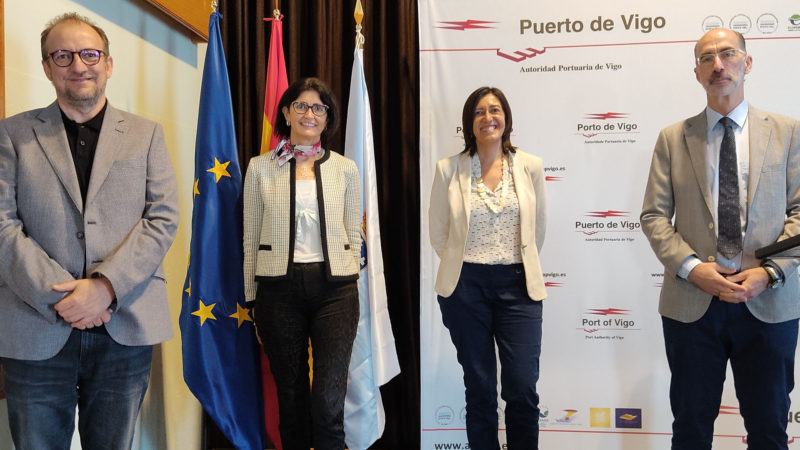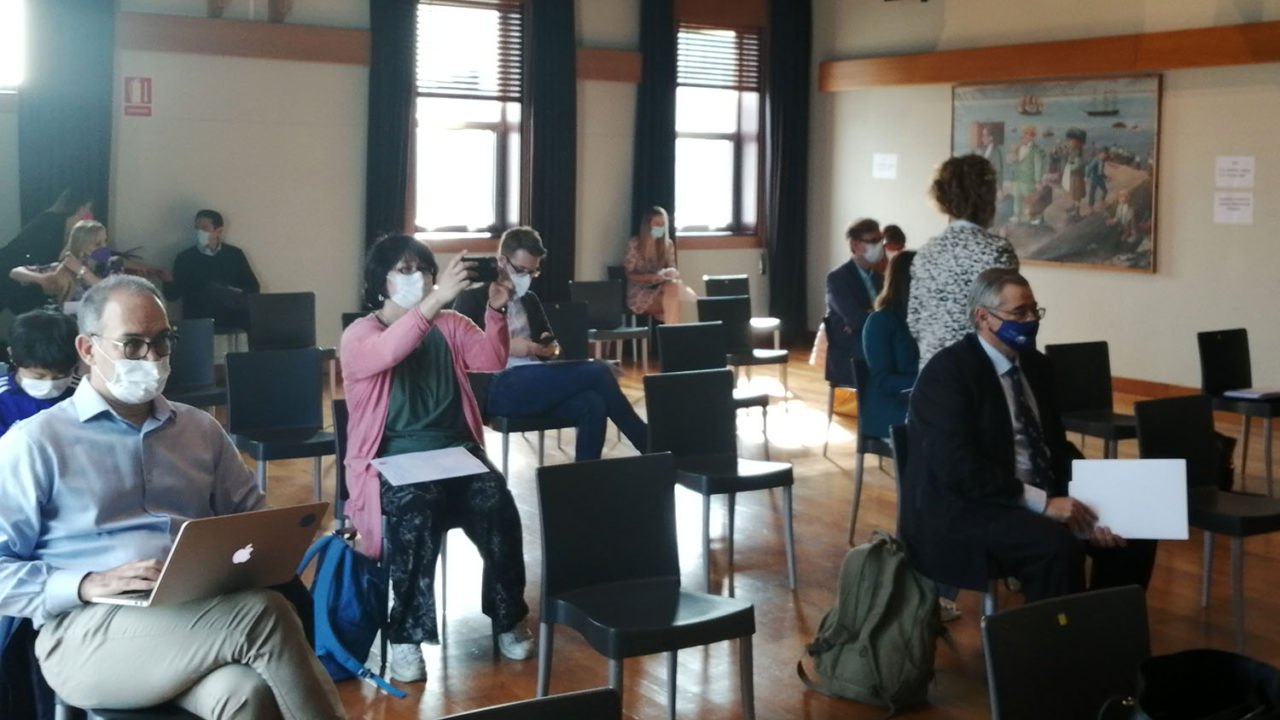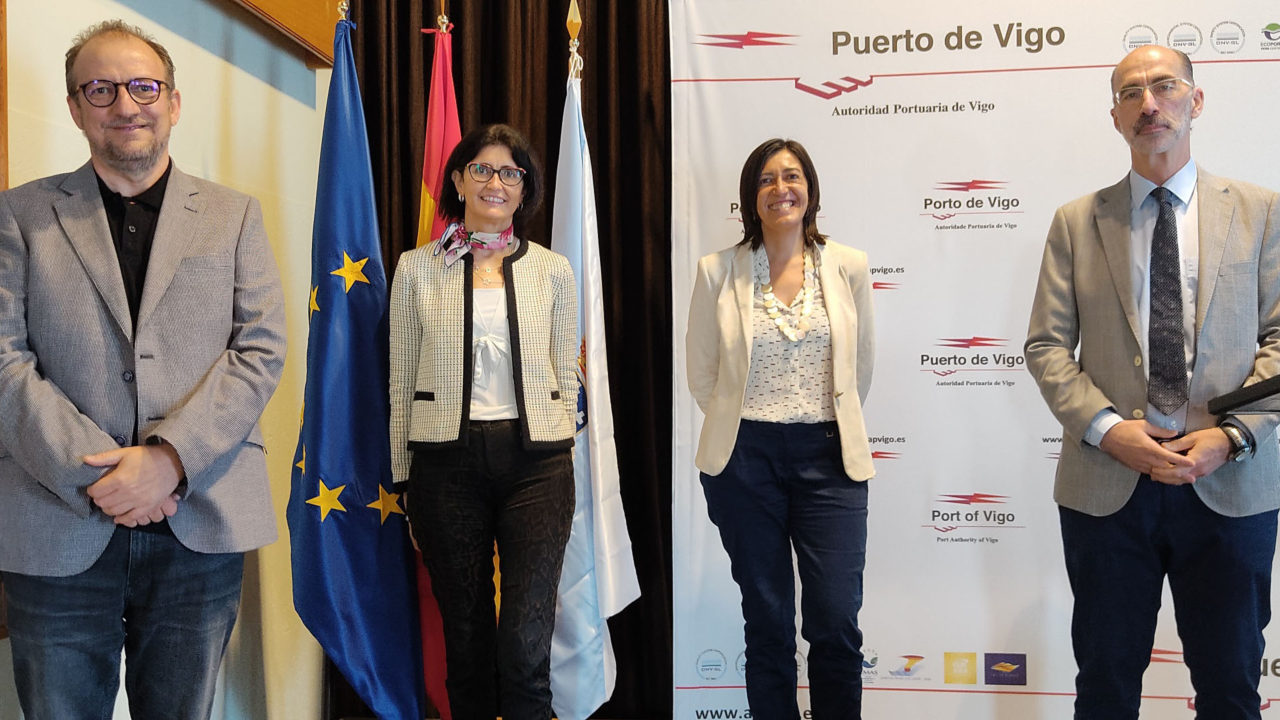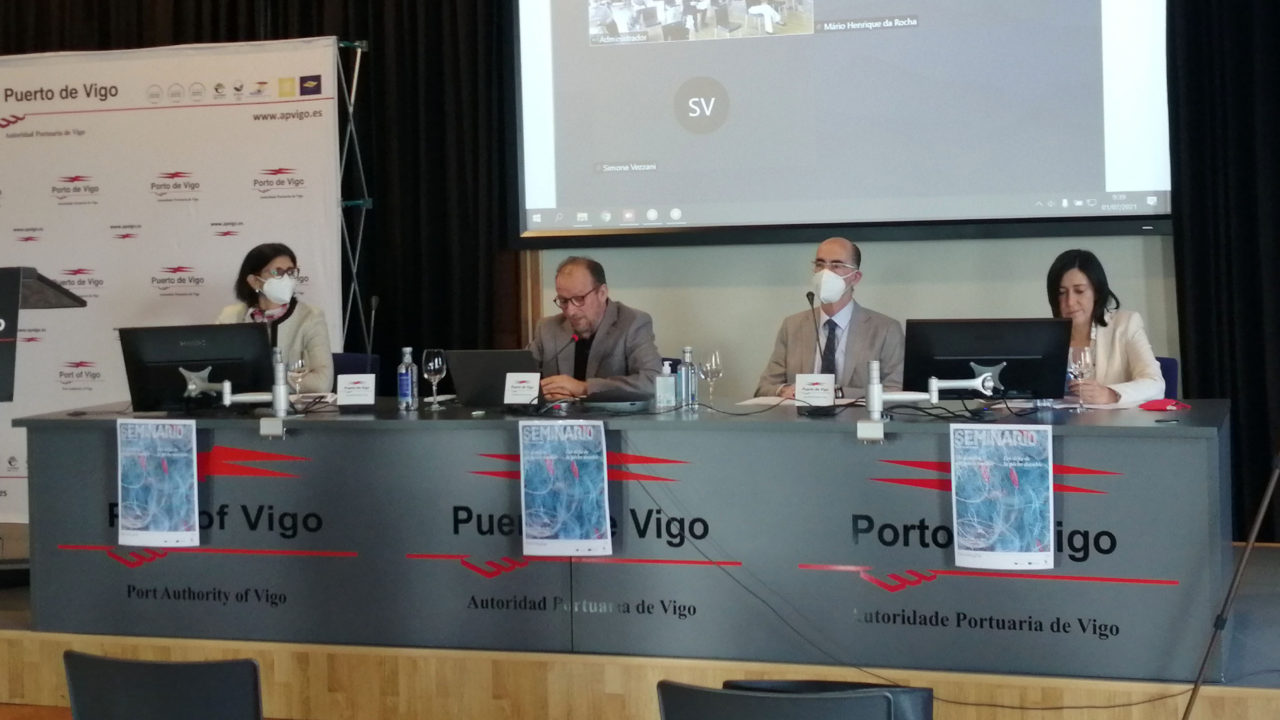The maritime fishing sector is in the process of transition to a much more sustainable model and, to achieve this, it must be transformed into a more sustainable activity, both from the environmental and social point of view -labor rights- and even economically. This is the central idea that is being discussed this Thursday and Friday at the International seminar about The Challenges of Sustainable Fishing, an activity organized within the framework of the Jean Monnet project A European vision of oceans and seas: maritime fishing and sustainable growth, which, after two years of intense work, is about to end.
At the opening of the meeting, at the headquarters of the MarInnLeg Foundation, the director of the Campus del Mar, Daniel Rey, and the president of the Port Authority of Vigo, Jesús Vázquez Almuiña, coincided with the two directors of the seminar, the professor of the University of Vigo Marta Fernández Prieto, and Laura Carballo, from the World Maritime University of Malmö, in Sweden. “What the program of this conference demonstrates is that the areas and research not only complement each other, but also reinforce each other,” said Vázquez Almuiña, who took advantage of his participation in this event to highlight the leadership of Porto de Vigo in fishing traffic and the defense of sustainability and the environment as priorities in its blue growth strategy.
The environment, the fight against unlawful acts and quality employment
The seminar brings together legal experts from various fields (Public International Law, Private International Law, Labor and Social Security Law and Commercial Law) from different universities (Vigo, A Coruña, Cordoba, Perpignan, Nantes, Perugia and Wordl Maritime University). “The program, therefore, offers a multidisciplinary and holistic treatment of the issues addressed,” explains Professor Fran Fernandez Prol, head of this Jean Monnet project, adding that the meeting involves about 30 people, most of them legal experts in this area, but also teachers of Vocational Training of the Maritime Fisheries Institute of the Atlantic, which collaborates with the project and doctoral students.
Regarding the main challenges, these experts consider that the seas must become safe spaces for the exercise of freedom of navigation and the rational exploitation of their resources. A number of topics were addressed through different panels. The first panel, which kicked off the seminar, focused on the causes and consequences of non-responsible exploitation of fishery resources. The panel was opened by Raphael Baumler (environment and safety in fisheries) and Laura Carballo (climate change and international litigation), both professors at the World Maritime University.
The second panel, on Thursday afternoon, will delve into the fight against illegal acts, addressing issues such as maritime piracy or illegal, unreported or unregulated fishing. The third panel, tomorrow, Friday, will delve into labor rights and social protection of workers in the maritime-fishing sector, and will analyze, among other issues, the prevention of occupational hazards in the sector, the organization of working time of fishermen, the peculiarities of their dismissals, as well as women’s work in the fishing sector.
Fonte: DUVI





